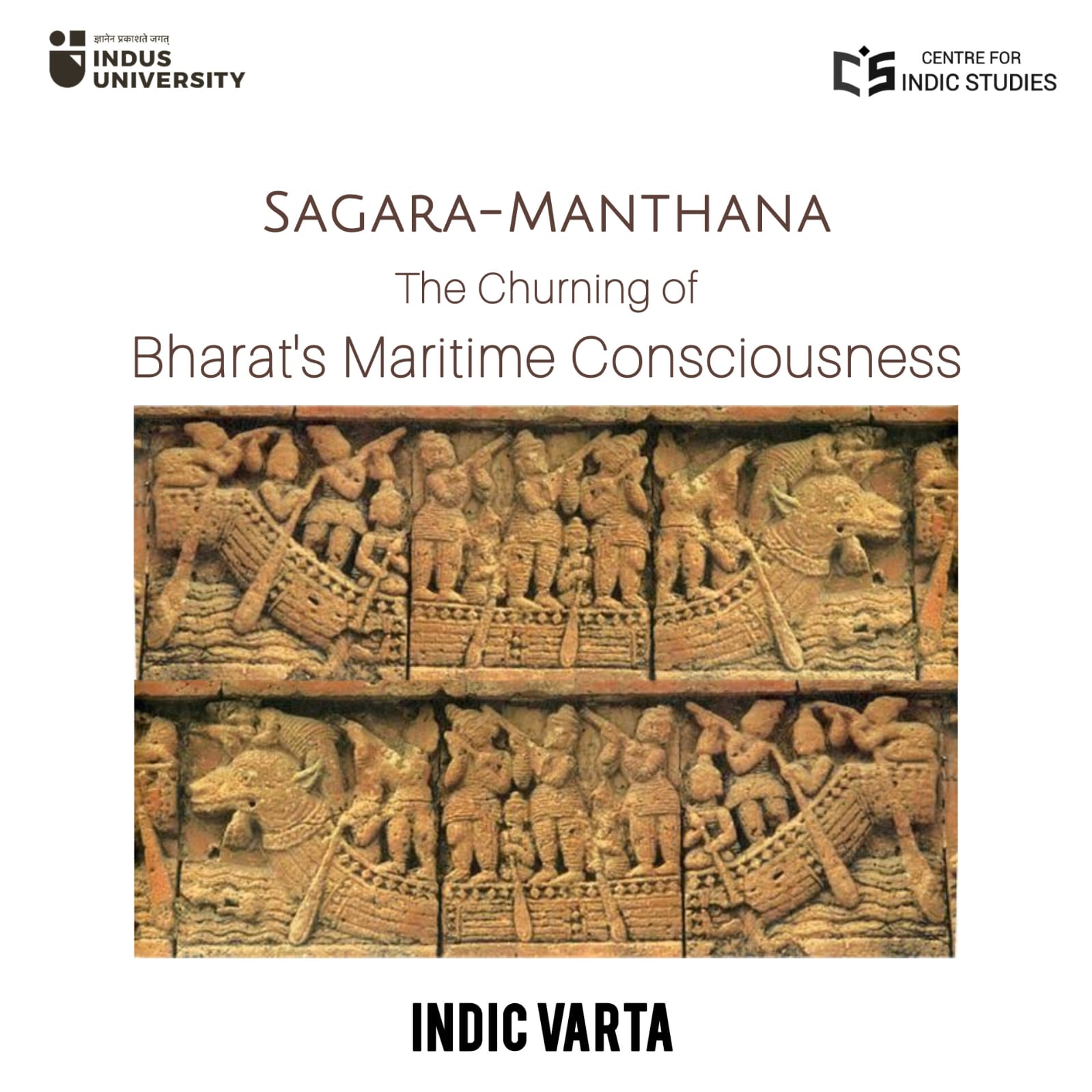- Visitor:34
- Published on:
Mother Teresa: Saint or Soul Vulture?
In this searing piece, Satish Verma analyzes the life and work of Mother Teresa, on her birth anniversary. Tracing her life’s work through two important publications he shows that more than anything else, Mother Teresa was a soul vulture whose primary goal was to convert Hindus to Christianity and it was in her and church’s benefit that India shall always be portrayed as a poor hellhole.

On 26th August 1910 a girl named Anjeze Gonxhe Bojaxhiu was born in the sleepy capital of the Macedonian province – Skopje, in a Kosovar Albanian family. She has a deep connection to India, for she later came to called as Mother Teresa. Leaving her motherland and her ethnic brotherhood she finally came and settled in India, engaged in conversion activities. On September 4, 2016 she was canonized by Roman Catholic Church in Vatican City and her sainthood finally became universal.
Her actions in India however do not match her mainstream image of an angel for poor who dedicated her entire life in the service of poors, sufferers, and diseased of Kolkata primarily. The evidence against her much hyped image of an angel for poor is quite robust due to the efforts of Aroup Chatterjee and Christopher Hitchens. A synopsis of her misdeeds and crimes while masquerading as the savior of poor is much needed when the Western media and Indian media are still singing the same old saga of her heroics and virtues.
The Cult of Mother Teresa
Mother Teresa a nun of Albanian ethnicity, born in present day Republic of Macedonia travelled to India at the age of 18 to devote herself for the cause of missionaries who were flourishing well in British India. She joined sister of Loreto before founding Missionaries of Charity(MoC) in 1950. She established a hospice in Kolkata under the umbrella of this organization which fetched a Noble peace prize for her.
Mother Teresa was primarily unknown to the Western world before 1969. The process of glorification of Mother Teresa started with a BBC documentary titled ‘Something Wonderful for God’ by a journalist Malcolm Muggeridge. Malcolm Muggeridge went on with publishing a hagiography of Mother Teresa with same name in 1971. The documentary and book provided the Western world the first glimpse of a nun who was working for the people of a city of a third world country, which was projected as worse than hell.
The reason Malcolm Muggeridge became attracted towards Mother Teresa and acted as her propaganda agent has more to do with the doctrines of Catholic church than anything else. Muggeridge was an anti-abortion journalist and Mother Teresa was a nun who was vehemently against abortion, especially when the refugees from then East Pakistan (Currently Bangladesh) were pouring in Kolkata due to atrocities committed on the people of Bengali ethnicity by Pakistani army and police and cases of illicit pregnancy were rising due to the increasing number of rapes.
The documentary and hagiography by Muggeridge created a huge impact in Western media because a white nun was serving the people of third world who were living in hell like conditions. Kolkata was portrayed as a city of extreme poverty immersed in the state of destitution, and Mother Teresa was projected as a savior who was rescuing the poor from that poverty. This is a fairy tale with white man’s burden for the western media.
What could be better than getting an opportunity to show the world white supremacist attitude and getting accolades for that? Mother Teresa never looked back after this incident. She instantly became a darling of Western media, journalists flocked from every corner of the world to magnify the work of this angel, and Mother Teresa became a synonym for charity all around the world.
The layer of deception which was cleverly built around by Western media and PR agencies of Catholic church in subsequent years fetched a Nobel Peace Prize for Mother Teresa in 1979. With this peace prize, her efforts received global acceptance and her cult which started ten years ago had become mature in its nature. The most profound impact of this peace prize was that she got acceptance among the people of Kolkata and Indian media too. People of Kolkata didn’t understand the dynamics behind it and started revering her because she was the second one after Rabindranath Tagore to get Nobel Prize from the city of Kolkata.
Meanwhile, she continued amassing huge amounts of wealth for the cause of service of poor from various legal and illegal sources, only to increase the presence of Missionaries of Charity in more countries and strengthening the cause of Catholic church. When Teresa died on September 5 1997, the national news channel of India, Doordarshan broadcasted the proceedings of her funeral live, while other media houses repeated the manufactured story of her virtues.
Mother Teresa had become the epitome of charity in India in mainstream discourse who was beyond any scrutiny. Mother Teresa, a Catholic church politician had been elevated to the status of saint in the conscience of Indians, much before official status of sainthood to her.
Mother Teresa, The Catholic Church Politician
When hagiographies of Mother Teresa had occupied the entire space in narrative and discourse, Aroup Chatterjee and Christopher Hitchens separately took the monumental task to dispel the myth which was built around Mother Teresa and make people aware about what Mother Teresa was. Throughout her life, Teresa did nothing to serve poor, rather she found extreme pleasure in glorifying the poverty as it evoked the spirit of Christ.
The much talked about hospice of Kolkata had minimum amount of medical facilities. It even didn’t have enough antibiotics and sterilized syringes. The poor who were severely ill didn’t get the proper medical treatment in her hospice because it was beautiful to see poor suffering as it was good for humanity. Not to forget that when Mother Teresa used to fall ill, she availed best medical facilities for herself from developed countries such as USA. Missionaries of Charity had a hefty account as this organization was getting adequate donations from every corner of the world due to her manufactured image.
Her claims of picking the people from the streets of Kolkata for treatment, feeding around 5000 people every day in Kolkata, helping children etc. turned out to be pure exaggeration and propaganda. A study by researchers from University of Montreal in 2013 found that the celebrated nun had 517 missions in 100 countries at the time of her death, but that the majority of patients were not cared for properly and many were left to die.
Mother Teresa had accepted money from various dubious sources in her lifetime, the primary ones being accepting money from Haitian Dictator Papa Doc Duvalier and American swindler Charles Keating.
Her aversion for abortion was the product of her strong adherence to the principles of Catholic church. In her Nobel Peace Prize acceptance speech, she termed abortion as greatest threat to humanity. It has been also observed that she forcibly baptized the dying people in her missionaries of charity home frequently.
When it comes to backing up the powerful against innocuous, she always sided with the powerful ones. She supported emergency when Indira Gandhi imposed emergency in 1975, she favored Union Carbide which was responsible for the tragic Bhopal Gas tragedy, and supported CIA backed Contas against the Sandinistas in Nicaragua. She had also extended her support to the Romanian dictator. To sum up, she was converting people in the disguise of service, amassing money in the pursuit of charity, and acting as a faithful politician of Catholic Church in India to harvest the souls.
After examining the deeds of Mother Teresa, one might wonder that how can such a fraudulent and sadistic nun get canonized as a saint. The answer of this question is fairly simple. For Catholic church, the person who has championed the cause of Catholic church will be declared as saint irrespective of their deeds which are far away from any service of humanity. In the history of church, the status of saint was usually given to the bishops, archbishops, Crusaders etc before 15th century. There were no predetermined rules and guidelines to elevate someone to the status of saint.
However, from 17th century, Roman Catholic church brought a comprehensive framework for canonization and giving someone the status of saint. The process of assigning sainthood to someone typically consists of six stages – Status of servant of God, status of venerable, first miracle, beatification, second miracle, and canonization.
The first important stage in this process is beatification which needs one intercessory miracle performed by the person who will be beatified. The process of beatification starts after at least five years of death of the person who will be beatified but this rule is sometimes not followed as in the case of Mother Teresa and Pope John Paul II. After the beatification is complete, when miracle gets verified by ‘scientific’ and ‘theological’ Committee of Roman Catholic Church, it needs second miracle to complete the process of canonization. The necessary condition of second beatification makes canonization of someone more difficult and there are thousands of people who got beatified, but never canonized.
Roman Catholic church started mass scale beatification after 1978 and sainthood is being given to the people more frequently as its influence is diminishing. Catholic church wants to create more and more number of saints who can act as their icons around the globe. That’s why they started giving the status of sainthood to the people who were even from 13th and 14th century. Only Catholic church can confirm the miracles performed by those persons. If we analyse the emerging trends of people gaining the status of saint in recent years, there is a sharp increase in the number of people from third world countries which are the potential markets for church.
In the case of Mother Teresa, the rules were surpassed and the process of her beatification started only one year after her death. Pope John Paul II wanted to see Teresa getting canonized before his death, because she had held the virtues of Catholic church in highest manner, and also because it will make the cult of Teresa universal and obligatory which will make conversion easy.
The miracles which awarded Teresa the status of saint reveals some interesting details. The first miracle which was necessary for her beatification was from India and second one from Brazil which was necessary for canonization; both the miracles from third world. The background of these two miracles make the case of her canonization even more interesting.
Sister Nirmala circulated the letters for asking details of miracles of Teresa in early 1999 and in April 1999, a tribal woman Monika Besra reported about the miracle which cured her tumor in September 5 1998 when nuns of Missionaries of Charity had placed a medallion on her tumor, which had a touch of body of Mother Teresa. Her tumor vanished within 8 hours and the search for miracles was over in three months. Catholic church later verified this miracle because it was not in conformation with laws of nature and scientifically inexplicable. The second miracle was reported in 2008 when a young Brazilian engineer named Marcilio Andrino Rocha was cured from brain abscesses when his wife prayed to Mother Teresa to cure her.
The first miracle was reported by an illiterate lady who was not a Christian, to show the world that the magic touch of Teresa works on the people who are not even Christian. It’s different matter now that the lady and her husband prays to Teresa and Jesus daily now because they fear that if they don’t pray, Monika’s illness will come back.
Second miracle reported by Brazilian engineer was for assigning more authority to Teresa’s miracles because church had faced criticism that the illiterate lady was coerced by Missionaries of Charity to make the claim of miracle. It’s interesting to note that the wife of Brazilian engineer who prayed to Teresa had a Ph.D. The church had awarded the status of sainthood to two more Indians in November 23, 2014 to strengthen the agenda of conversion in India. Saint Kuriakose Elias Chavara (died 1871) and Rosa Eluvathingal (died 1952), both from Kerala and members of Syrian Christian Church.
Saint Chavara, Rosa and Teresa perfectly fit in the plan of Pope Francis to present church as more inclusive in nature. As I earlier stated, Catholic church only awards the status of saint to those people who served Catholic church and history is filled of numerous such examples. Escriva, the founder of controversial rightwing organization Opes Die (third fastest beatification after Pope John Paul II and Mother Teresa) and 19th century pope Pius IX who had declared that Jews are dogs, are accorded the status of sainthood in Catholic church tradition.
To a Hindu the entire process seems ridiculous. In India there are no authorities and no certificates for saints. Saints are those whom the society respects. But not so in Christianity. Faith healing has no scientific and rational basis and canonization glorifies and even seeks to legalize this superstitious practice in accordance with the completely unscientific attitude of church in history and present time too. By awarding sainthood to Mother Teresa, church has again proved that evangelism and soul harvesting is the only thing which matters to them. It also proves that Mother Teresa seldom cared about the poor or the suffering. She was, more than anything else, a soul vulture.
- 17 min read
- 0
- 0










